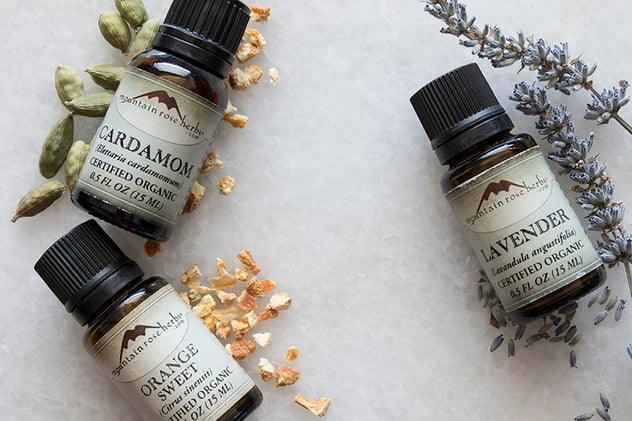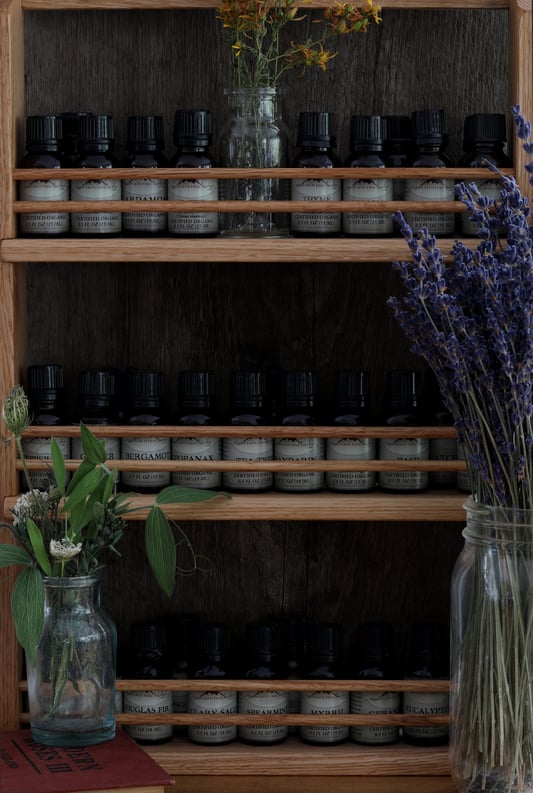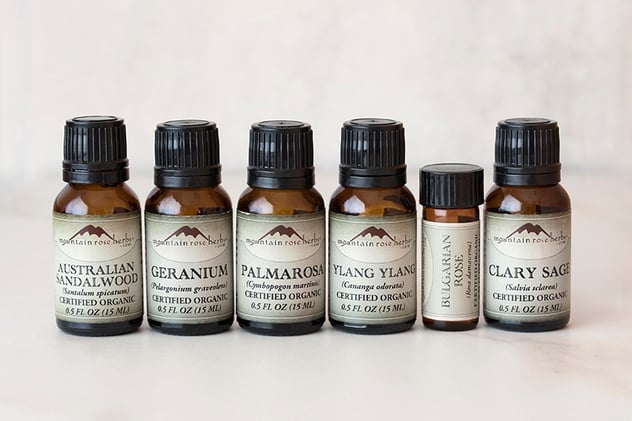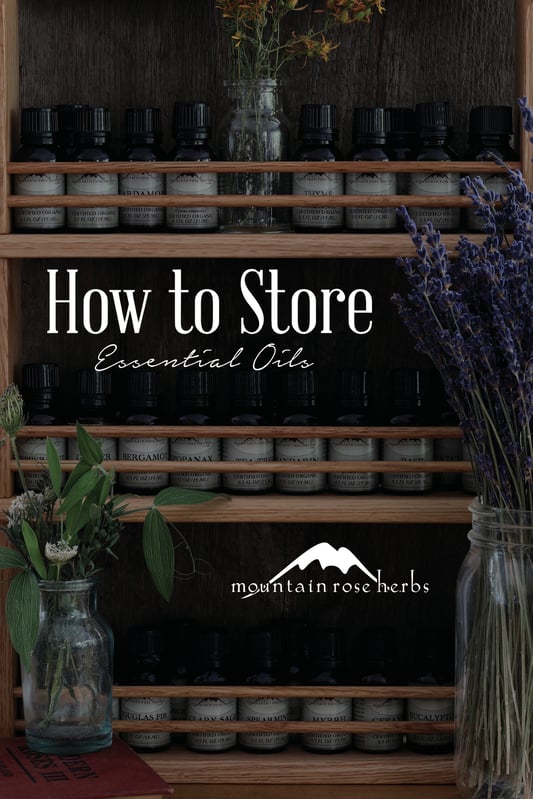Let's face it, essential oils are not cheap! They require a lot of plant material to produce a small amount of oil, so it's important to get the most out of your little bottles of aromatic goodness.
Do Essential Oils Expire?
When stored correctly, essential oils can last a long time. Conservatively, you can keep properly stored oils for at least one year. I have had some of the oils in my collection for over five years, and I have every reason to believe that they still have a long life ahead of them.
What Factors Affect the Shelf Life of Essential Oils?
Essential Oil Damage from Heat and Light:
Essential oils are flammable. Each oil has specific temperature at which it will ignite, or "flash point." Luckily, the flash points of essential oils are generally quite high. A comfortable room temperature storage place will suffice, but I would not recommend storing oils above a range or wood stove, as the heat rising from such heat sources can accelerate oil degredation.
Storing in direct sunlight can affect the color of an oil and, consequently, its constituents. This doesn't mean that you need to keep your oils in a box or drawer, but you should avoid keeping them in habitually sunny spots.
Essential Oil Damage from Oxygen and Moisture:
Oxidation occurs when an essential oil is exposed to oxygen. Frequent and prolonged contact with air will deteriorate the oil and increase evaporation. However, if you discover that some of your oils have been overexposed to oxygen, all is not lost. Such oils can still be used for cleaning product recipes and even some diffusion, but they should not be used for most aromatherapy applications and should not be applied to the skin.
Moisture is also detrimental to a bottle of pure essential oil and can enter the oil if the lid is left off for too long. Signs of water infiltration include cloudiness in the oil and water beading up at the bottom of the container.
How to Store Essential Oils
To avoid heat and light, we recommended that you keep essential oils in a cool, dry place. Kitchen and bathroom cupboards can work well. I store mine on a bookshelf that does not get direct sunlight.
Amber or cobalt glass bottles are preferred over clear glass. Most essential oils already come in colored glass bottles when you purchase them. Never store pure essential oils in plastic—they are corrosive and will eat away at the container.
To avoid oxidation and moisture, store bottles of oil with their lids on when you are not using them. It's also a good idea to transfer oils from a larger container that is almost empty to a smaller one. Let's say you use a lot of lemon essential oil and purchase it in 4 oz. quantities. When your bottle is half full or less, you may want to transfer the oil into a 1 oz. or 2 oz. bottle. The less empty space in a bottle, the better!
Essential Oil Supplies: Reducer Caps and Droppers
Most 1/2 oz. and 1 oz. essential oils that you purchase will come with a drop-by-drop reducer inside the cap. These are really helpful and can be kept on the bottle. They allow you to dispense the oil one drop at a time. They are made of thick plastic and don't usually come into direct contact with the oil when they are not being used. With that said, they can break down over time. I like to keep some extra reducer lids around to replace as needed.
Some oils are just too thick for these handy reducer caps or don't come with one. In this case, glass droppers come in handy for dispensing your oils. It is important that you do not use the dropper as a lid for your bottle! The bulbs of a dropper are made from a very pliable rubber and will break down quickly if used as a lid. Always use the screw cap lid that was provided with the bottle for storage. Ideally, it's good practice to clean out your glass droppers with alcohol for storage and future use. You can also designate and label a dropper for a certain oil and store it in a glass jar with a lid.
Following these easy guidelines will ensure that your essential oils will last as long as you need them. Visit our website to see our full line of essential oils, storage containers, and glass droppers.
REady to put your oils to good use?
Create Your Own Essential Oil Fragrance Blends!
You may also enjoy:














